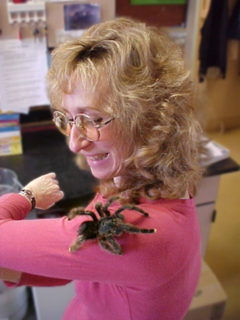A Quote by Dan Simmons
Once upon a time ... the only autonomous intelligences we humans knew of were us humans. We thought then that if humankind ever devised another intelligence that it would be the result of a huge project ... a great mass of silicon and ancient transistors and chips and circuit boards ... a machine with lots of networking circuits, in other words, aping-if you will pardon the expression-the human brain in form and function. Of course, AIs did not evolve that way. They sort of slipped into existence when we humans were looking the other way.
Quote Topics
Ancient
Another
Autonomous
Boards
Brain
Chips
Circuit
Circuits
Course
Did
Ever
Evolve
Existence
Expression
Form
Function
Great
Huge
Human
Human Brain
Humankind
Humans
In Other Words
Intelligence
Knew
Looking
Lots
Machine
Mass
Networking
Once
Once Upon A Time
Only
Other
Pardon
Project
Result
Silicon
Sort
Then
Thought
Time
Transistors
Us
Way
Were
Will
Words
Would
Would Be
Related Quotes
To our human minds, computers behave less like rocks and trees than they do like humans, so we unconsciously treat them like people.... In other words, humans have special instincts that tell them how to behave around other sentient beings, and as soon as any object exhibits sufficient cognitive function, those instincts kick in and we react as though we were interacting with another sentient human being.
It was not that I disliked people; some of them were interesting and kind. But even the nice ones were no more compelling or important to me than other creatures. Then, as now, to me humans are but one species among billions of other equally vivid and thrilling lives. I was never drawn to other children simply because they were human. Humans seemed to me a rather bullying species, and I was on the side of the underdog.
When humans act like animals, they become the most dangerous of animals to themselves and other humans, and this is because of another critical difference between humans and animals: Whereas animals are usually restrained by the limits of physical appetites, humans have mental appetites that can be far more gross and capacious than physical ones. Only humans squander and hoard, murder and pillage because of notions.
Although humans today remain more capable than machines for many tasks, by 2030 machine capabilities will have increased to the point that humans will have become the weakest component in a wide array of systems and processes. Humans and machines will need to become far more closely coupled, through improved human-machine interfaces and by direct augmentation of human performance
Remember that the machine is there to help you, because at the end of the day, you're not playing freestyle chess, advanced chess, human-plus-machine. If you are playing against other humans, it's about winning the game. The machine will not be assisting you, unless you are cheating of course. And since the machine is not there, you have to make sure that everything you learn from the computer will not badly affect the way you play the real game.
All experiments that are related to the games when you have humans versus machines in the games - whether it's chess or "Go" or any other game - machines will prevail not because they can solve the game. Chess is mathematically unsolvable. But at the end of the day, the machine doesn't have to solve the game. The machine has to win the game. And to win the game, it just has to make fewer mistakes than humans. Which is not that difficult since humans are humans and vulnerable, and we don't have the same steady hand as the computer.
I think that anything is a form of folk music. That's just me being glib, but the thing I like the best about humans, and there are not many other things besides this, is that humans make culture. If you're an artist, a big part of folk is noticing what other people are doing and incorporating it and changing it - the way that songs warp and change over time.
Humans — who enslave, castrate, experiment on, and fillet other animals — have had an understandable penchant for pretending animals do not feel pain. A sharp distinction between humans and 'animals' is essential if we are to bend them to our will, make them work for us, wear them, eat them — without any disquieting tinges of guilt or regret. It is unseemly of us, who often behave so unfeelingly toward other animals, to contend that only humans can suffer. The behavior of other animals renders such pretensions specious. They are just too much like us.
In the past, humans hesitated when they took lives, even non-human lives. But society had changed, and they no longer felt that way. As humans grew stronger, I think that we became quite arrogant, losing the sorrow of 'we have no other choice.' I think that in the essence of human civilization, we have the desire to become rich without limit, by taking the lives of other creatures.

































